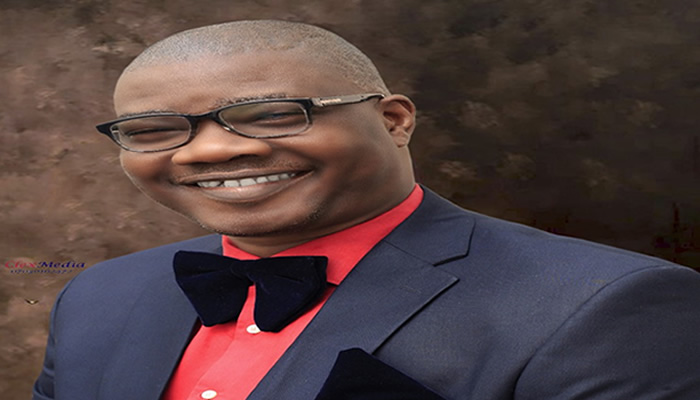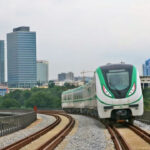
“For the new year to yield all its good benefits to us as individuals and collectively as a people we must be prepared to play our part. The job of building a prosperous nation is not the job of the President, governors, ministers, lawmakers and government officials alone. Our destinies are connected as members of this household of Nigeria. Our language, creed, ethnicity and religious beliefs even when they are not the same should never make us work at cross purposes. In this new year, let us resolve that as joint heirs to the Nigerian commonwealth, we will work for the peace, progress and stability of our country.”
President Bola Tinubu in his national broadcast on January 1, 2024
Welcome to 2024 fellow compatriots. Happy New Year! The holidays are over and it’s time to roll up the sleeves and set to work. Two significant acts of President Bola Tinubu are already generating hoopla. They are his new year national broadcast, and the signing into law of the Federal Government’s N28.77tn budget passed by the National Assembly on December 30, 2023. Interestingly, these two are interconnected. Speeches are mere rhetoric when there’s no means of implementing them. With the budget signed, resources should now be made available to Ministries, Departments and Agencies to implement the president’s economic blueprint.
The president’s speech had some sound bites. One of them is his show of empathy when he said, “From the boardrooms at Broad Street in Lagos to the main streets of Kano and Nembe Creeks in Bayelsa, I hear the groans of Nigerians who work hard every day to provide for themselves and their families. I am not oblivious to the expressed and sometimes unexpressed frustrations of my fellow citizens. I know for a fact that some of our compatriots are even asking if this is how our administration wants to renew their hope.”
On the ease of doing business and improving the economy, Tinubu said, “I will fight every obstacle that impedes business competitiveness in Nigeria and I will not hesitate to remove any clog hindering our path to making Nigeria a destination of choice for local and foreign investments.” To the Nigerian worker, the president said, “We will work diligently to make sure every Nigerian feels the impact of their government. The economic aspirations and the material well-being of the poor, the most vulnerable and the working people shall not be neglected. It is in this spirit that we are going to implement a new national living wage for our industrious workers this new year. It is not only good economics to do this, it is also a morally and politically correct thing to do.” Note that the president did not say minimum wage but a living wage. Nigerians are waiting!
In his about 15-minute speech, Tinubu spoke on a wide range of issues. He said 2023 was a transition year and thereafter gave a recap of what his administration has been doing in the last seven months. He acknowledged the economic pains the subsidy removal on petrol and the unification of exchange rate have inflicted on Nigerians. He touched briefly on security where he stated that his government has silently been freeing those abducted and his efforts to revive the economy.
He spoke on the pivotal role of electricity when he said his administration recognises that no meaningful economic transformation can happen without a steady electricity supply. Mention was also made of the quest to restart local refining of petroleum products with Port Harcourt Refinery, and the Dangote Refinery which is expected to fully come on stream in the course of the year. He said his government is racing against time to ensure all the fiscal and tax policy reforms needed to be put in place are codified and simplified to ensure the business environment does not destroy value. He touched on agricultural reform and his commitment to cultivate 500,000 hectares of farmlands across the country to grow maize, rice, wheat, millet and other staple crops. It is noteworthy that this commitment was first made in his July 31, 2023 broadcast. As an update, the president said he launched dry season farming with 120,000 hectares of land in Jigawa State last November under the National Wheat Development Programme.
The president did not mince words in emphasising once more that no excuse for poor performance from any of his appointees would be good enough. According to him, it is the reason he has put in place a Policy Coordination, Evaluation, Monitoring and Delivery Unit in the Presidency to make sure that governance output improves the living conditions of Nigerians.
By Tinubu’s admittance, what he has been doing since taking over is planning. He said he had laid the groundwork of economic recovery plans within the last seven months of 2023, stating that his administration is now poised to accelerate the pace of service delivery across sectors. Nigeria awaits the delivery of democracy dividends to them.
There are gaps in the president’s speech. He failed to give facts and figures. The speech was not data-driven and very short on statistics. Tinubu did not say what had been done in terms of support to micro small and medium enterprises. For instance, in his July 31, 2023 presidential broadcast, he said he would strengthen the manufacturing sector by funding 75 enterprises with great potential to kick-start sustainable economic growth, accelerate structural transformation and improve productivity. Each of the 75 manufacturing enterprises would be able to access N1bn credit at nine per cent per annum with a maximum of 60 months’ repayment for long-term loans and 12 months for working capital.
He said then that his administration recognises the importance of micro, small and medium-sized enterprises and the informal sector as drivers of growth; as such he would energise this very important sector with N125bn. Out of the sum, he promised to spend N50bn on conditional grants to one million nano businesses between August 2023 and March 2024. His target is to give N50,000 each to 1,300 nano business owners in each of the 774 local governments across the country. In like manner, he promised to fund 100,000 MSMEs and start-ups with N75bn. Under this scheme, each enterprise promoter will be able to get between N500,000 to N1m at nine per cent interest per annum and a repayment period of 36 months. Tinubu did not give an update on this.
Mr President is also silent on his proposed Infrastructure Support Fund for the states. He is equally silent on the promise to invest N100bn between August 2023 and March 2024 to acquire 3,000 units of 20-seater Compressed Natural Gas-fuelled buses. Federal workers are complaining that the N35,000 wage award promised to federal workers has only been paid once, which is for September 2023. What has happened to the October, November and December awards? Now he is promising living wage. Can he be trusted? The President did not talk about anti-corruption, education, health and human capital development. He is equally silent on restructuring to streamline and cut down on the cost of governance. Is there going to be a National Population and Housing Census in 2024? Mum is the word from Tinubu.
The signing of the 2024 budget is very significant. It means several things. It is Tinubu’s third budget since he took over the reins of power on May 29, 2023, having first sent the 2022 supplementary budget to the National Assembly in July 2023. He also sent in the 2023 supplementary budget to the federal lawmakers before the presentation of the 2024 budget to the National Assembly on November 29, 2023. Well, in the national interest and in order to maintain the January-to-December financial year, the federal lawmakers worked assiduously even on weekends to ensure the passage of the appropriation bill within a month. This is the type of collaboration needed among the three arms of government.
The significance of the Federal Government budget is that all the new ministries created last year such as Ministries of Tourism, Arts, Culture and Creative Economy; Steel Development; Marine and Blue Economy; Budget and National Planning, will now have their separate budgets as against what their ministers have been experiencing of having to run their ministries without offices, personnel and proper funding. It is expected that there will be prompt budget release and cash backing so that the various heads of MDAs can perform optimally.
The crux of the matter is how this huge budget will be funded in the face of revenue shortage, high cost of governance and ballooning borrowing. Don’t forget, the new ‘living’ wage is expected to kick in later this year after deliberations have been concluded with the labour unions.
X: @jideojong





